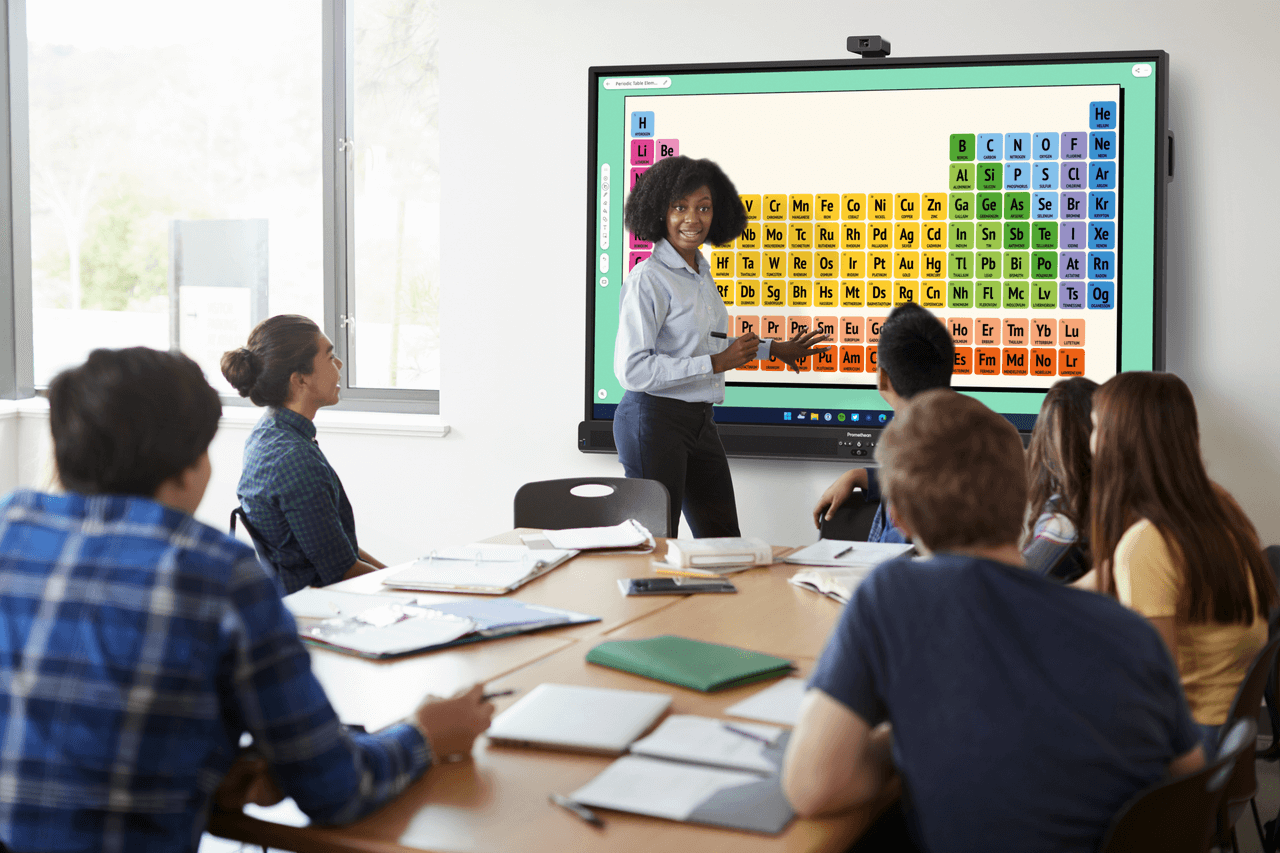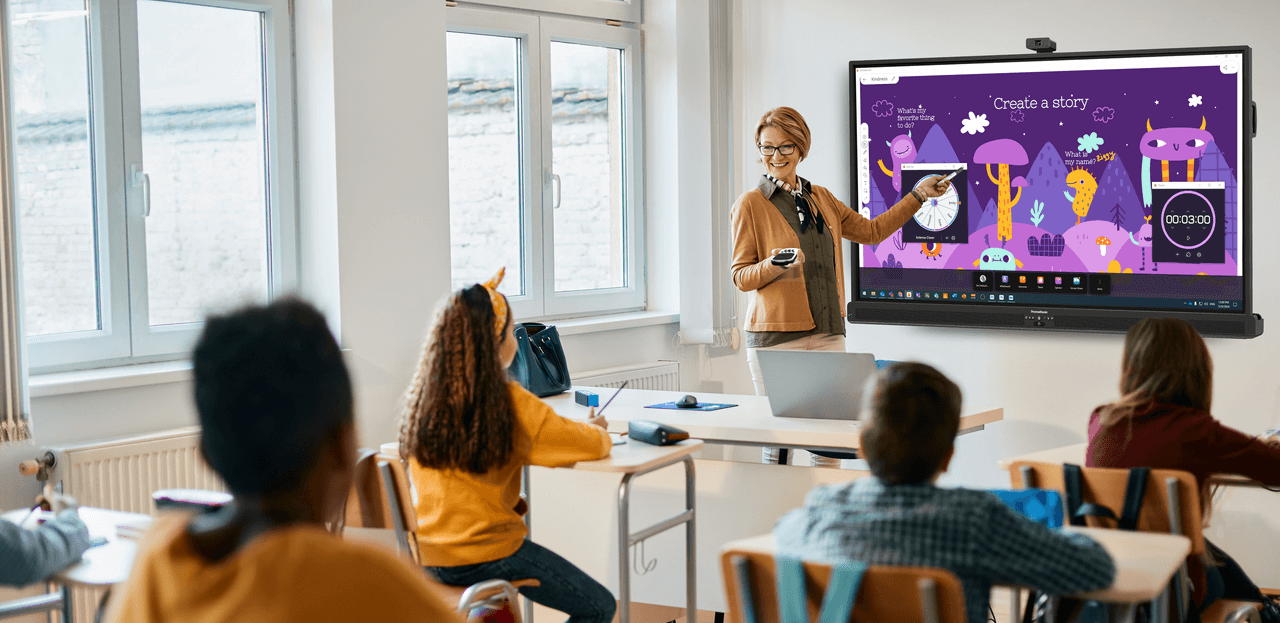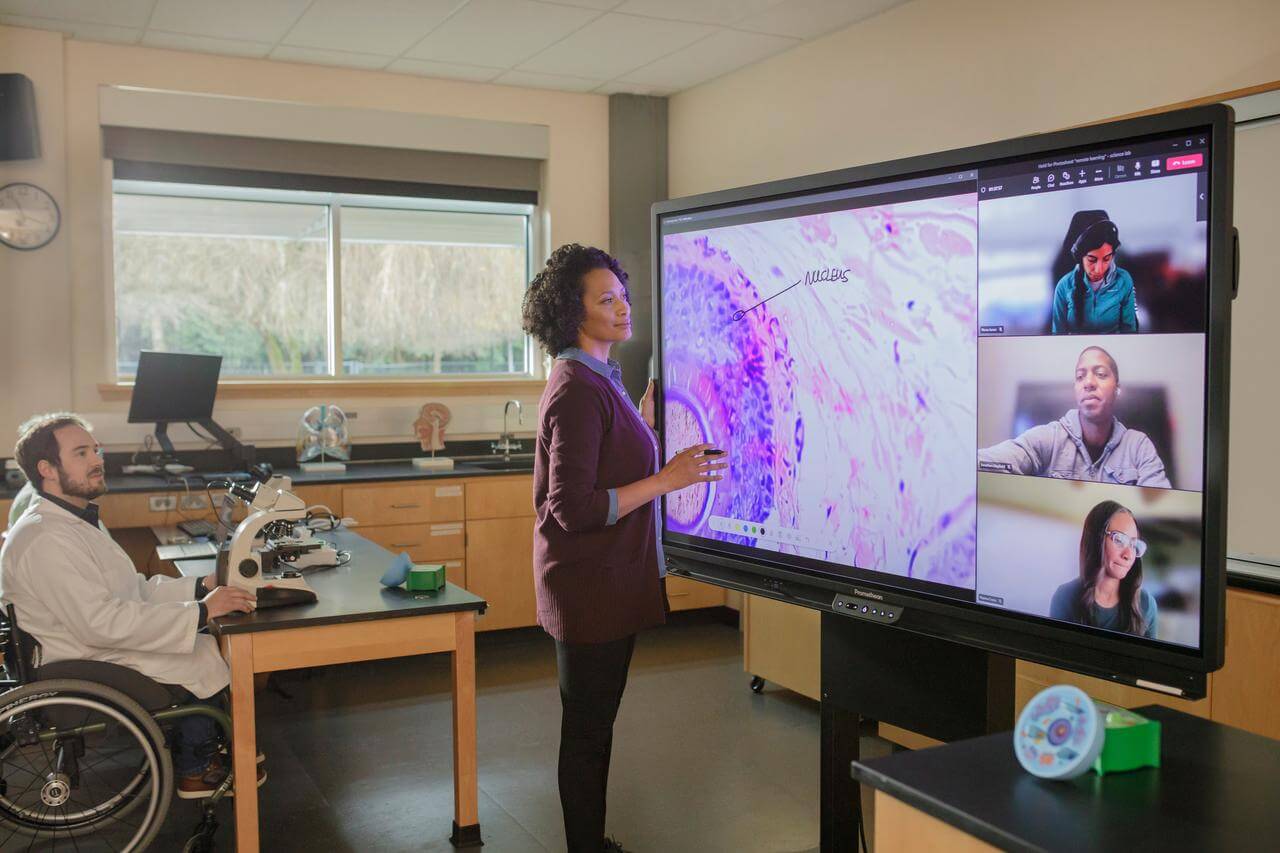Published on April 20th, 2022
How important are virtual learning environments?
4 minute read

As the metaverse arrives, find out how virtual learning environments have been used most effectively, and whether they will remain important.
Although virtual learning environments evoke remote and hybrid learning for many, they’ve been leveraged by educators long before a pandemic forced education to temporarily pivot online. As well as fundamentally facilitating day-to-day teaching during that online period, they’ve enabled new opportunities to enrich the instructional experience.
Nevertheless, educators have debated the value of virtual, rather than in-person, learning experiences. Some believe they can prove less engaging over time, while others wonder if they’re a distraction from the trusted classroom environment. Promethean’s Head of International Education Strategy, John Collick, interviewed renowned international futurist, Gerd Leonhard, about the role virtual learning experiences play in the face-to-face future of education. The full report shares how educators will need to integrate these tools in a balanced, effective way.
So how can virtual learning environments be used, and what makes them such a popular form of edtech?
“What we do between people is very hard to completely virtualize. We have great solutions, but they’re not the same as real life.”
– Gerd Leonhard
The virtues of virtual
Virtual learning environments are part of a dynamic teaching strategy for many educators. They open up students’ access to communicating with peers across their city, country, and world, forging connections and social skills. It can help put both their learning and independence into perspective, collaborating with others for improved interpersonal skills and learning outcomes.
Rather than processing information relayed by a teacher, virtual learning environments can host immersive experiences involving demonstrations of concepts or activities. They open up static lesson delivery outside the classroom’s confines. And teachers can harness these rewards without demanding much effort from the students, as their digital nativity makes these platforms more accessible.
Find out more about how valuable virtual learning environments will be in the full predictions report.
The merits of the metaverse
Some educators will be unfamiliar with the arrival of the metaverse—and those who are might not understand what it means for education. But the metaverse can be viewed as the next evolution of virtual learning environments. A more expansive online virtual reality platform, it might be tempting to hastily dismiss it as a high-tech fad, and others will be wary of the need for e-safety. However, the metaverse could still provide some of the same benefits as VLEs, such as stimulating creativity, visual learning, and community-based learning.
It represents an untapped opportunity for innovation and invention; staff and students alike will be able to find novel educational approaches. Nevertheless, as with all edtech, educators will need direction around how best to implement the metaverse within a learning context, and it will be most effective if it supplements, rather than detracts from, the in-person classroom experience.
Up next: The role of the teacher in the future of education.
Previously: Is education becoming more environmentally friendly?




